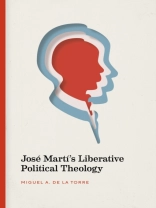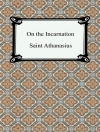José Martí’s Liberative Political Theology argues that Martí’s religious views, which at first glance might appear outdated and irrelevant, are actually critical to understanding his social vision. During a time in which the predominant philosophical view was materialistic (e.g., Darwin, Marx), Martí sought to reconcile social and political trends with the metaphysical, believing that ignoring the spiritual would create a soulless approach toward achieving a liberative society. As such, Martí used religious concepts and ideas as tools that could bring forth a more just social order. In short, this book argues Martí could be considered a precursor to what would come to be called liberation theology.
Miguel De La Torre has authored the most comprehensive text written thus far concerning Martí’s religious views and how they affected his political thought. The few similar texts that exist are written in Spanish, and most of them romanticize Martí’s spirituality in an attempt to portray him as a “Christian believer.” Only a handful provide an academic investigation of Martí’s theological thought based solely on his writings, and those concentrate on just one aspect of Martí’s religious influences. José Martí’s Liberative Political Theology allows for mutual influence between Martí’s political and religious views, rather than assuming one had precedence over the other.
Tabella dei contenuti
Preface
Notes on Translation
Introduction
Chapter One: A Catholic Spiritual Foundation
The Physical-Metaphysical Divide
First Spiritual Utterances
Martí’s Religiosity
Catholicism
Catholic Influences
Bishop Espada and Father Caballero
Fathers Varela and Luz
La Santa Biblia
Chapter Two: Apostle to a New Religion
A Positivist Age
La nueva religión
La nueva iglesia
Protestantism
Krausismo
Masonic Influences
Chapter Three: Pluralist Spiritual Foundation
Spiritualism
Unitarianism and Transcendentalism
Eastern Traditions
African Traditions
Indigenous Traditions
Judaism
Liberative Christian Humanism
Chapter Four: Precursor to Liberation Theology
Liberation Theology
Liberative Message of Love
Violence
Establishing Justice
Economic Imperialism
Solidarity with the Oppressed
Praxis
Raising Consciousness
Chapter Five: Theological Assumptions
God
Humans
Jesucristo
Aesthetics
Sin
Suffering and Martyrdom
Notes
Bibliography
Index
Circa l’autore
Miguel A. De La Torre is a professor of social ethics and Latinx studies at the Iliff School of Theology in Denver, Colorado.







![Copertina di Brian Schrag & Julisa Rowe: Community Arts for God's Purposes [Chinese] 貼近神心意的社群藝術 Copertina di Brian Schrag & Julisa Rowe: Community Arts for God's Purposes [Chinese] 貼近神心意的社群藝術](https://static.worldofdigitals.com/thumb_webp/740/9781645083740.webp)




